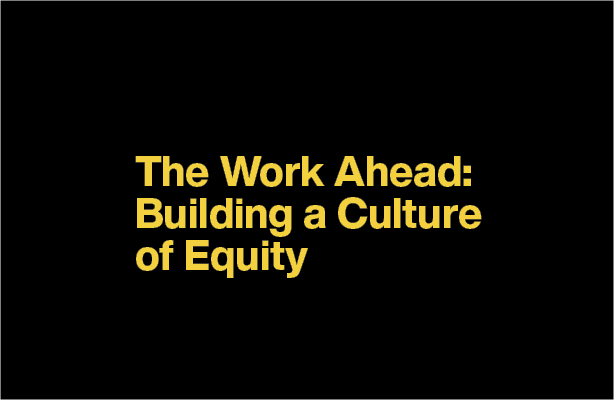News
Dean’s Letter – Spring 2021
Amidst a time of continued heartache and grieving in the world, we consider ourselves fortunate to be planning a return next fall to the spaces of learning and making that we all hold so dear. This poignant moment of anticipation, however, brings with it both wariness and weariness. For we recognize in the faces of Black and Brown Americans who have been victims of police violence; in the faces of the countless who have been discriminated against, scapegoated, and attacked; in the faces of all who risk everything for a better life; and in the faces of those who have experienced intersecting struggles — in all these faces we recognize — the diverse citizenry of our own student body.
We are not spectators to the call for radical change, but rather an academic community where the goals of equitable access and excellence have been embedded since our school was founded. Faith in this promise has made us one of the most diverse and visionary architecture schools in the country — and this must never be taken for granted. The departure of former Dean Lokko has laid bare the gap between mission and reality. What the past year of civil rights uprisings in our country and turbulence within our school has taught us is that for our mission to carry meaning, it must be continually measured against the lived experience of each and every one of our students, faculty, staff members, and leaders. For too long, our position as a diverse public school of architecture has been a badge rather than a lens. And there is no way to realign word and deed without the patient and painstaking work of listening.
This semester, our school community has come together in an unprecedented way to hear one another and to reflect on the past year. One of our first acts was a schoolwide studio listening hour that transformed class time into a platform for students to discuss the challenges of remote learning, the personal hardships of the pandemic, and equity and respect in the classroom. In tandem, we expanded student town halls and established more robust student representation within school governance. Students have seized these opportunities by voicing their concerns and introducing a range of initiatives. These include an in-progress digital commons to ease the hardship of remote instruction and a student-led lecture series that purposefully celebrates design beyond the predominantly white, male, European canon. Students, we hear you.
This spring we also established the school’s first committee dedicated to examining how we can create a more just, equitable, diverse, and inclusive academic environment. This JEDI committee is comprised of students, staff, and faculty who are examining what the diversity we’ve always celebrated actually means at Spitzer, and looking across all aspects of the school for ways that we can further cultivate a learning environment rooted in mutual respect, inclusivity, and compassion. This committee is the beginning of a longer process of engagement to explore what it means to foster an anti-racist work environment, curriculum, and studio culture. In concert with this, we are establishing two new permanent annual awards: one that celebrates student activism within the school and another that provides mentorship opportunities for graduating students of color to partner with faculty in developing critical and creative approaches to decolonizing the curriculum.
But we also recognize that the difficult work of building a culture of equity is not something we can do on our own. We are embarking on both short-term and long-term commitments to bring this goal to fruition. In the short term, Diana Cuozzo, CCNY’s Chief Diversity Officer & Title IX Coordinator, and Dr. Lynn Hernández, Assistant Dean for Diversity & Inclusion at the CUNY School of Medicine, will be working with administrators, faculty, and staff on trainings related to implicit bias and microaggressions in our learning environment. In the longer term, we will be partnering with an external Diversity, Equity, and Inclusion facilitator to guide meaningful, open discussions; to develop an action plan for our equity goals; and to implement a process for internal assessment of progress on those goals. We expect this work to begin soon and to continue into the summer, through next year, and beyond to generate a substantive and lasting impact for our school culture. For administrators, faculty members, and staff, this support and training will make us better attuned to the diverse beliefs and feelings, and also to the shared values, that we and our students bring to the table, so that we may operate in a manner that respects and elevates those values. The process of learning is not something that falls on students’ shoulders alone, but must continually be sought by those who lead the school, advise students, and teach in the classroom.
This process is not monolithic, nor is it swift. Rather, it is multifaceted and measured. To reimagine ourselves and to reinvigorate our mission and pedagogies, we must take the necessary time to both reflect and do the work. This means being proactive; it means making sure that our words are backed up by actions. This moment of growth and self-reflection is a tender and critical opportunity for our school. We will continue this work and commit to listening, to hearing, and to seeing our students, our colleagues, and our city. We are committed to forging a school that will remain a leading voice in the re-imagination of more equitable, beautiful, and resilient urban environments, and in defending the right to an affordable and excellent education. We were here before most, and we can continue to lead in these efforts.
Interim Dean Bradley Horn
April 29, 2021


